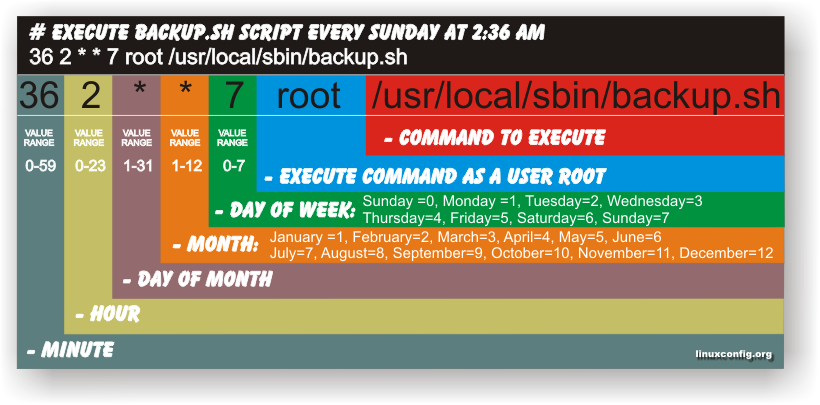I want to use GPIO outputs to drive an IOT Power Strip.
 www.sparkfun.com
www.sparkfun.com
My question is about triggering scheduled events.
For instance I want to issue a GPIO command to turn a pin on and off on a schedule.
So I could use
Looking around I found sysutils/fcron and sysutils/anacron. Both can run commands on a schedule.
anacron seems to use daily jobs. I need minute precision.
Another option I have considered is deskutils/calcurse.
I like the approach of scheduling by calendar. It can run commands too.
Can you recommend any programs I may have missed.
I need to schedule a command like
IoT Power Relay - COM-14236 - SparkFun Electronics
Do you want to control a standard wall outlet device with your microcontroller, but don’t want to mess with the high-voltage wiring? The IoT Power Relay
 www.sparkfun.com
www.sparkfun.com
My question is about triggering scheduled events.
For instance I want to issue a GPIO command to turn a pin on and off on a schedule.
So I could use
cron but would like to avoid system utilities.Looking around I found sysutils/fcron and sysutils/anacron. Both can run commands on a schedule.
anacron seems to use daily jobs. I need minute precision.
Another option I have considered is deskutils/calcurse.
I like the approach of scheduling by calendar. It can run commands too.
Can you recommend any programs I may have missed.
I need to schedule a command like
gpioctl to run 4 times a day.

